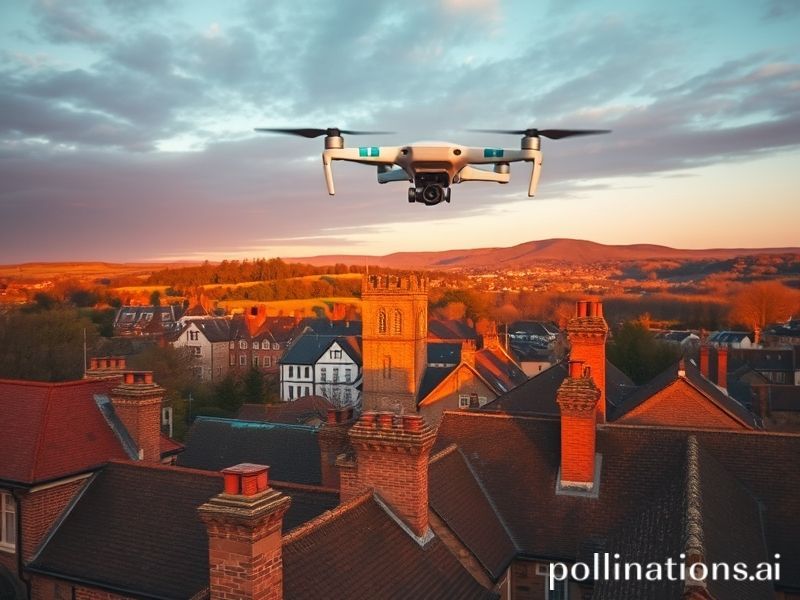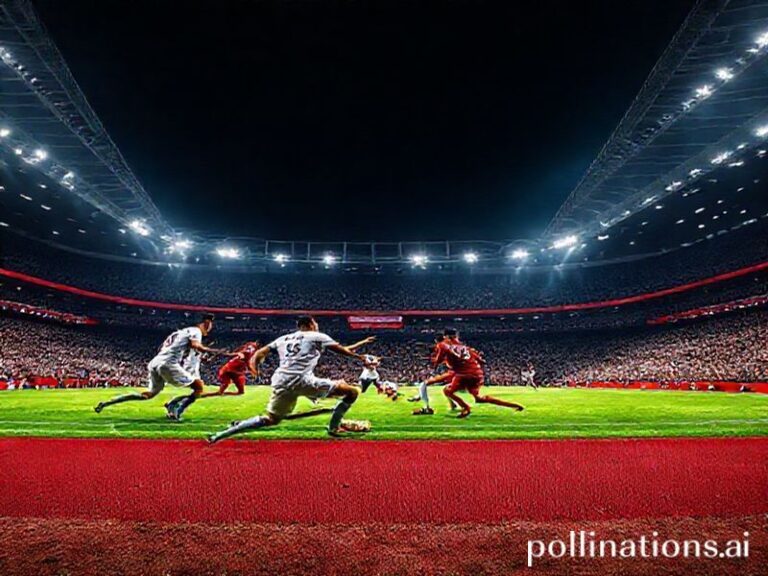Malvern: How a Sleepy English Spa Town Became the Planet’s Preferred Luxury Tap Water
Malvern, Worcestershire – population 30,000, two Michelin-starred restaurants, one hill that looks like a sleeping dinosaur after a long lunch – has spent centuries pretending to be a quiet English spa town. The illusion is useful: while the rest of the planet busies itself with coups, crypto crashes, and whatever Elon is renaming this week, Malvern carries on bottling spring water and politely pretending that the world still makes sense. Tourists arrive expecting Jane Austen and leave with a plastic litre of the same liquid billionaires now ship by the tanker-load to Dubai. Global relevance, it turns out, can ooze out of limestone at 55 litres a minute.
The water itself is older than most nation-states. It fell as rain when the Magna Carta was still a rough draft, percolated through Precambrian rock, and finally emerged so pure the EU once considered making it a separate customs union. Today it is piped across five continents, an invisible British export that never needed a trade deal. In Lagos it sits on executive desks beside bullet-proof briefcases; in Shanghai it props up influencer brunch photos; in Los Angeles it is mixed with alkaline powder and sold back to humans who have forgotten what thirst feels like. Malvern’s hilltops, meanwhile, remain reassuringly soggy, as though the Earth is quietly recycling our delusions of grandeur into something potable.
If you stand on the Worcestershire Beacon at dusk you can almost hear the supply chains humming: articulated lorries full of glass bottles queued like supplicants at the Holy Land’s last confession booth, each driver clutching a phone that tells him the exact microsecond his load must reach a supermarket in Singapore or a film set in Reykjavík. Malvern’s traffic lights change for him alone, a small civic courtesy to the logistics of planetary hydration. The town council once debated limiting exports on ecological grounds, then remembered the local school roof depends on foreign yen and quietly passed a motion praising “sustainable extraction”. Democracy, like water, finds its own level.
Beyond the liquid cash cow, Malvern has become an accidental pilgrimage site for the world’s anxious elite. Silicon Valley wellness gurus come to “ground themselves” in iron-rich mud that still smells faintly of Victorian tuberculosis. Russian oligarchs purchase second (or fifth) homes in converted sanatoria, attracted by countryside quiet and the pliant regulatory imagination of British property law. The town’s single nightclub – imaginatively named “The Club” – now hosts Tuesday-night techno curated by a Berlin DJ flown in on a private jet fuelled, in exquisite irony, by the same kerosene that will eventually melt the glaciers feeding rival Alpine springs. Everyone agrees the bassline is “transcendent”; no one mentions the carbon offset invoice.
It would be comforting to report that Malvern has remained immune to the ideological contagions sweeping the wider world. Alas. The local Facebook group recently imploded over whether Ukrainian flags on the lampposts constituted “virtue signalling”, a linguistic import that arrived faster than the spring water. The vegan café painted a rainbow zebra crossing; someone added a Union Jack in washable chalk and called it balance. Meanwhile the Chinese bottling plant on the edge of town quietly doubled capacity and installed facial-recognition turnstiles to keep staff from smuggling out product. Surveillance capitalism, it appears, also prefers its minerals artisanal.
And yet, on misty mornings when the hills float above the Severn plain like islands of pre-modern sanity, Malvern still works a modest magic. Japanese honeymooners photograph each other pretending to drink from the fountain that inspired the water-cure movement, unaware that the spout is fed by the municipal mains. An ageing American novelist sits on a bench muttering plot twists into a voice recorder that no longer has batteries. A Nigerian diplomat jogs past, training for a charity half-marathon sponsored by the very brand draining his ancestral aquifers back home. None of them quite grasp that they are extras in the same long-running farce: the planet’s hydrological cycle repackaged as lifestyle choice, sold back to us at 2.49 a pop.
When the last glacier sighs and the last desalination plant blinks offline, somewhere a Malvern borehole will still cough up Paleolithic rain. Whether anyone remains with enough disposable income to buy it is another question entirely. Until then the town maintains its courteous fiction: a postcard England where the water is pure, the hills are eternal, and the global economy is just a polite guest who remembered to wipe his feet. Drink up; irony, unlike groundwater, is infinitely renewable.







